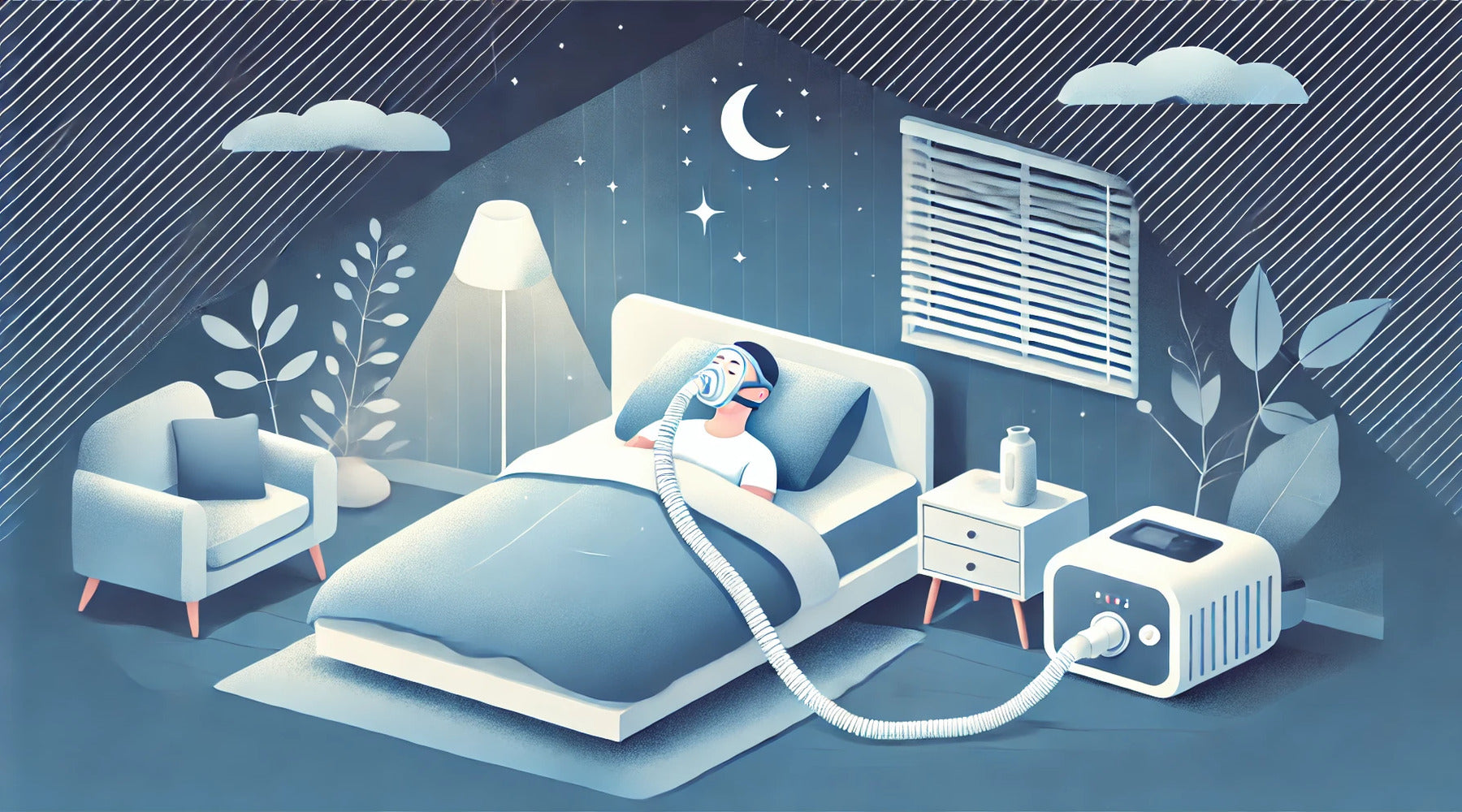
Unmasking Sleep Apnea: A Silent Threat to Your Health and Well-being
Sleep apnea is a potentially serious sleep disorder that affects millions of people worldwide. This comprehensive guide delves into the symptoms, causes, and treatment options for sleep apnea, with a particular focus on
What Is Sleep Apnea and How Does It Affect Your Body?
Sleep apnea is a sleep disorder characterized by repeated interruptions in breathing during sleep. These pauses, or apneas, can last from a few seconds to minutes and may occur 30 times or more per hour. As a result, the body doesn't get enough oxygen, leading to fragmented sleep and various health issues.
The most common type is
Sleep apnea can significantly impact your overall health, increasing the risk of cardiovascular problems, diabetes, and other chronic conditions. It also affects daily life, causing excessive daytime sleepiness, mood changes, and impaired cognitive function.
What Are the Common Symptoms of Sleep Apnea?
Recognizing the symptoms of obstructive sleep apnea is crucial for early diagnosis and treatment. Some common signs include:
- Loud snoring
- Gasping or choking during sleep
- Excessive daytime sleepiness
- Morning headaches
- Difficulty concentrating
- Irritability or mood changes
- Dry mouth or sore throat upon waking
It's important to note that not everyone who snores has sleep apnea, and not everyone with sleep apnea snores. If you experience any of these symptoms, especially if they're persistent, it's advisable to consult a sleep specialist.
What Causes Sleep Apnea and Who Is at Risk?
Sleep apnea can affect anyone, but certain factors increase the risk.
- Excess weight
- Neck circumference
- Family history
- Age (risk increases with age)
- Gender (men are more likely to develop sleep apnea)
- Smoking
- Alcohol or sedative use
- Nasal congestion
Central sleep apnea happens when your brain doesn't send proper signals to the muscles that control breathing. This type is often associated with other medical conditions, such as heart failure, stroke, or high altitude.
Understanding these risk factors can help you assess your likelihood of developing sleep apnea and take preventive measures when possible.
How Is Sleep Apnea Diagnosed?
Diagnosing sleep apnea typically involves a comprehensive sleep study, also known as a polysomnography. This test can be conducted in a sleep center or, in some cases, at home. During the study, various body functions are monitored, including:
- Brain activity
- Eye movement
- Heart rate
- Blood pressure
- Oxygen levels
- Chest movements
- Airflow
The data collected helps sleep specialists determine the severity of your sleep apnea and guide treatment decisions. In some cases, additional tests may be necessary to rule out other sleep disorders or health conditions.
What Are the Most Effective Treatments for Sleep Apnea?
Treatment for sleep apnea depends on the type and severity of the condition. For mild cases, lifestyle changes may be sufficient. These can include:
- Weight loss
- Avoiding alcohol and sedatives
- Changing sleep positions
- Quitting smoking
For moderate to severe cases, the most common treatment is Continuous Positive Airway Pressure (CPAP) therapy. A CPAP machine delivers air pressure through a mask while you sleep, keeping your upper airway passages open. While highly effective, some people find CPAP machines uncomfortable and may need time to adjust.
Other treatment options include:
- Oral appliances
- Positional therapy
- Surgery (in severe cases)
- Inspire therapy (an implanted device that stimulates key airway muscles)
Your sleep specialist will work with you to find the most suitable treatment based on your specific condition and preferences.
Can Lifestyle Changes Help Manage Sleep Apnea?
While medical treatments are often necessary for managing sleep apnea, lifestyle changes can play a significant role in improving symptoms and overall health. Some beneficial changes include:
- Maintaining a healthy weight
- Regular exercise can help treat sleep apnea and improve overall health.
- Establishing a consistent sleep schedule
- Avoiding alcohol and sedatives before bedtime
- Quitting smoking
- Sleeping on your side instead of your back
These changes not only help manage sleep apnea but also contribute to better overall health and well-being. It's important to work with your healthcare provider to develop a comprehensive management plan that includes both medical treatments and lifestyle modifications.
How Does Sleep Apnea Affect Your Overall Health?
Obstructive sleep apnea is more than just insomnia; it can have far-reaching effects on your overall health. People with untreated sleep apnea are at increased risk for:
- Cardiovascular problems (high blood pressure, heart disease, stroke)
- Type 2 diabetes
- Liver problems
- Metabolic syndrome
- Complications with medications and surgery
- Cognitive impairment and memory issues
- Mood disorders (depression, anxiety)
Understanding these potential health consequences underscores the importance of early diagnosis and treatment. If you suspect you might have sleep apnea, don't hesitate to seek medical advice.
What Should You Know About Sleep Apnea in Children?
While sleep apnea is often associated with adults, it can also affect children. Sleep apnea in children may present differently than in adults and can have significant impacts on growth, behavior, and learning. Common symptoms in children include symptoms of
- Snoring
- Pauses in breathing during sleep
- Restless sleep
- Bedwetting
- Behavioral problems
- Poor school performance
The most common cause of sleep apnea in children is enlarged tonsils and adenoids. Treatment options may include removing the tonsils and adenoids, using a sleep apnea device, or other interventions depending on the underlying cause.
If you suspect your child might have sleep apnea, it's crucial to consult a pediatrician or somnologist for proper evaluation and treatment.
How Can You Support a Loved One Living with Sleep Apnea?
Living with sleep apnea can be challenging, and support from family and friends can make a significant difference. Here are some ways to help:
- Encourage adherence to treatment plans
- Help create a sleep-friendly environment
- Be understanding of mood changes and fatigue
- Assist with lifestyle changes (e.g., exercise, healthy eating) to treat sleep apnea effectively.
- Attend doctor appointments for support and to ask questions about your sleep apnea treatment plan.
- Learn about sleep apnea to better understand their experience
Remember, sleep apnea affects not only the person with the condition but also their bed partner and family members. Open communication and mutual support are key to managing the challenges of living with sleep apnea.
What's New in Sleep Apnea Research and Treatment?
The field of sleep medicine is continuously evolving, with ongoing research into new treatments and management strategies for sleep apnea. Some areas of current interest include:
- Personalized medicine approaches
- Alternative CPAP designs for improved comfort
- Neurostimulation therapies
- Combination therapies
- Pharmacological treatments
Staying informed about these developments can help you make better decisions about your care and potentially access new treatment options as they become available. Always consult with your somnologist about the latest advancements in sleep apnea treatment and whether they might be suitable for your specific case.
In conclusion, sleep apnea is a complex sleep disorder with potentially serious health implications. However, with proper diagnosis and treatment, most people with sleep apnea can significantly improve their sleep quality and overall health. Here are the key takeaways:
- Sleep apnea is characterized by repeated interruptions in breathing during sleep
- Common symptoms include loud snoring, gasping during sleep, and excessive daytime sleepiness
- Risk factors include obesity, age, gender, and family history
- Diagnosis typically involves a sleep study
- Treatment options range from lifestyle changes to CPAP therapy and surgical interventions
- Untreated sleep apnea can lead to serious health complications
- Sleep apnea can affect both adults and children
- Support from family and friends is crucial for managing the condition
- Ongoing research promises new and improved treatment options in the future
Remember, if you suspect you or a loved one might have sleep apnea, don't hesitate to seek medical advice. Early diagnosis and treatment can significantly improve your quality of life and long-term health outcomes.

